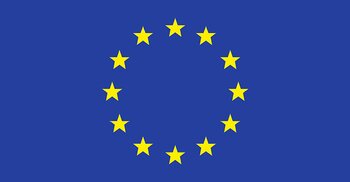September, 2022 - EU updates FAQs and clarifies position on carriage of Russian coal, fertilisers and other goods
As advised in our previous update, on 10th August, 2022, the EU published updated FAQs (the “August FAQs”) clarifying the application of provisions (more particularly Article 3i and 3j of Council Regulation 2022/576 (“the Regulation”)) relating to the carriage of certain cargoes from Russia, including coal and other solid fossil fuels and fertiliser.
The August FAQs suggested that the prohibitions in Articles 3i and 3j of the Regulation were intended to have a wider impact than just carriage into the EU and could impact the carriage of such cargoes from Russia to any other country. The apparent result was that the involvement of an EU entity in the carriage of Russian fertilisers and coal or other solid fossil fuels to any destination whatsoever, whether inside or outside the EU, would be in breach of EU sanctions.
However, on 19th September, 2022, the EU revised the FAQs, reversing the position in relation to certain restricted goods. Contrary to the position taken in the August FAQs, the revised FAQs now make it clear that the transport of coal, certain fertilisers and other goods in Annex XXI of Council Regulation 833/2014 (and the provision of related insurance) is not prohibited where goods are being transferred or transported to third countries. The relevant extract from the FAQs is as follows:
“2. Is the transfer of goods listed in Annexes XVII, XXI and XXII of Council Regulation 833/2014 by an EU company allowed when the goods are destined for a third country and are not transiting Union territory
Last update: 19 September 2022
No. Articles 3g, 3i and 3j of Council Regulation 833/2014 prohibit the purchase, import, or transfer, directly or indirectly, of the goods listed in Annexes XVII, XXI and XXII if they originate in Russia or are exported from Russia. The prohibition on transfer applies irrespective of the final destination of the goods, whereas the prohibition on the import applies by nature to goods moving “into the Union”. Provided the transfer falls within the scope of Article 13 of Council Regulation 833/2014, it is not relevant whether the goods are destined for the EU or not. This supports the aim of the sanctions which is to significantly weaken Russia’s economic base, depriving it of critical markets for its products and to significantly curtail its ability to wage war. Any other interpretation would render the prohibition largely devoid of purpose and create significant loopholes.
However, the Union is committed to avoiding that its sanctions impact food and energy security of third countries around the globe, in particular of the least developed ones. In light of this commitment, which is clearly stated in recitals 11 and 12 of Council Regulation 2022/1269, the transfer to third countries of certain goods listed in Annex XXI and XXII should be allowed “to combat food and energy insecurity around the world” and “in order to avoid any potential negative consequences therefor” in third countries. This applies to the transfer to third countries, as well as financing or financial assistance related to such transfer, carried out by EU operators or via the EU territory (including in transit) of the following goods:
- Fertilisers falling under CN codes 310420, 310520; 310560; ex31059020 and ex31059080 related, as listed in Annex XXI;
- Animal feed falling under CN code 2303, as listed in Annex XXI;
- Certain hydrocarbons falling under CN codes ex2901 and 2902, as listed in Annex XXI;
- Essential goods falling under CN codes 44 (wood); 2523 and 6810 (cement products), as listed in Annex XXI;
- All the items listed in Annex XXII (coal and related products).”
The EU Commission has also clarified that the provision of relevant services including insurance and reinsurance tied to the transfer or transport of the above listed goods to third countries.
Members are reminded that EU sanctions apply within the territory of the European Union; on board any ship under the jurisdiction of an EU Member State; to any person inside or outside the territory of the EU who is a national of a Member State; to any legal person, entity or body, inside or outside the territory of the EU, which is incorporated or constituted under the law of a Member State and to any legal person, entity or body in respect of any business done in whole or in part within the EU. We urge Members to frequently review the sanctions position when dealing with any country where sanctions are applicable as the position may change rapidly.
As always, if Members have any questions in relation to the above issues they are invited to contact the Club for further information.
